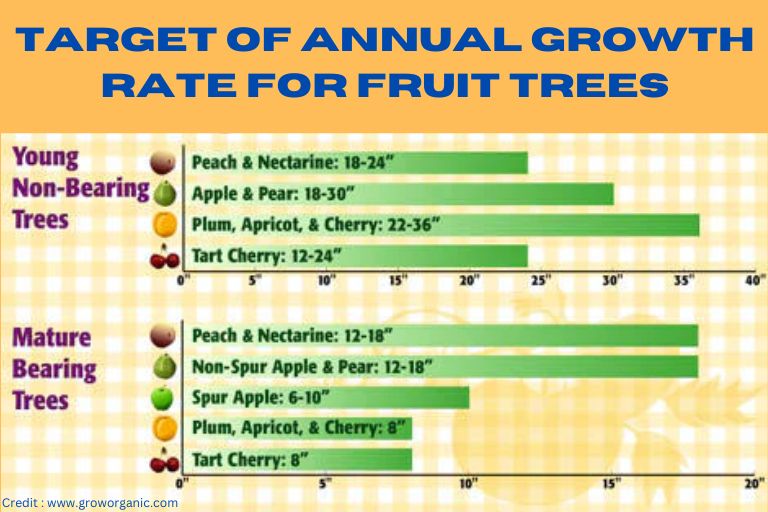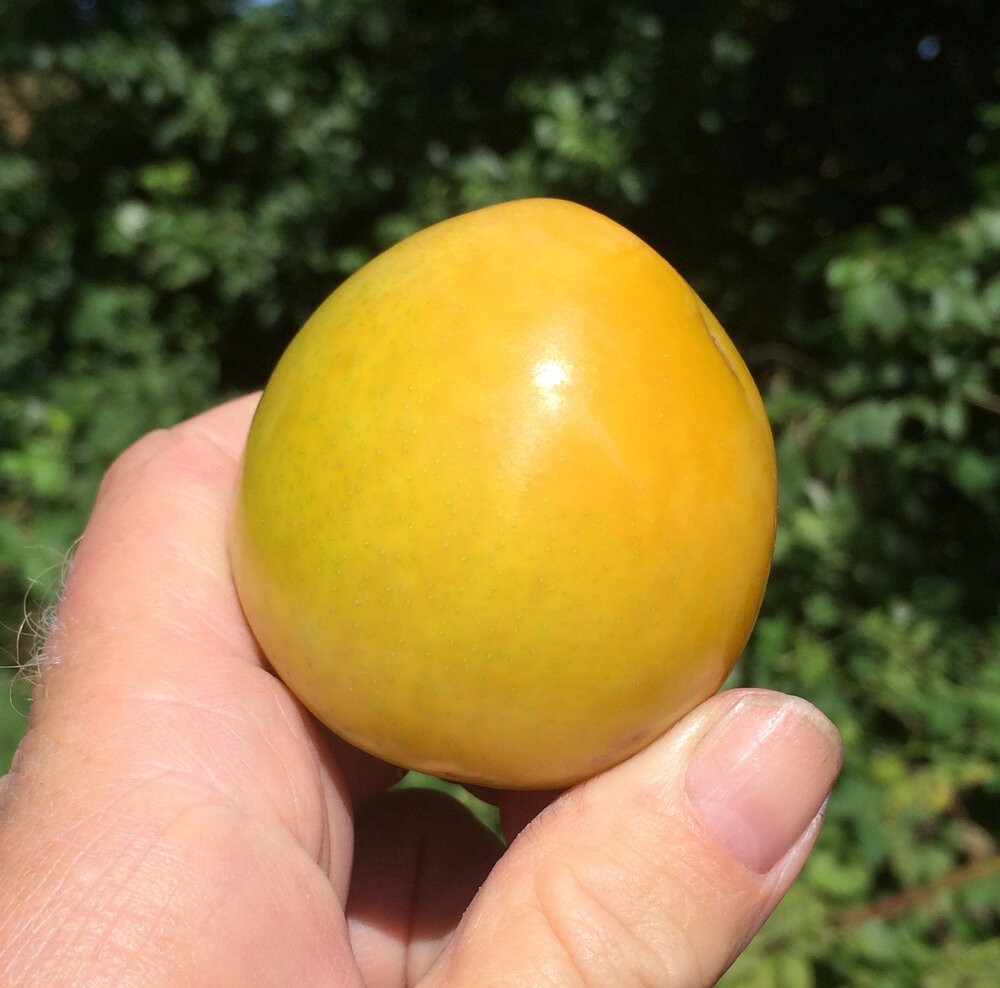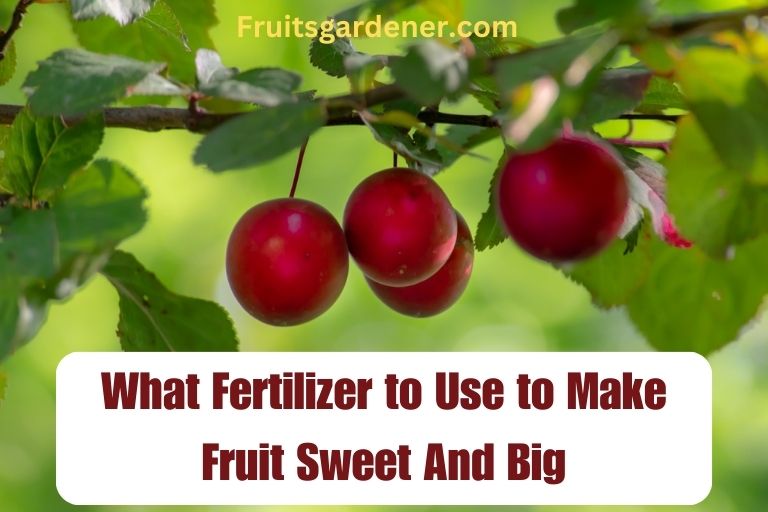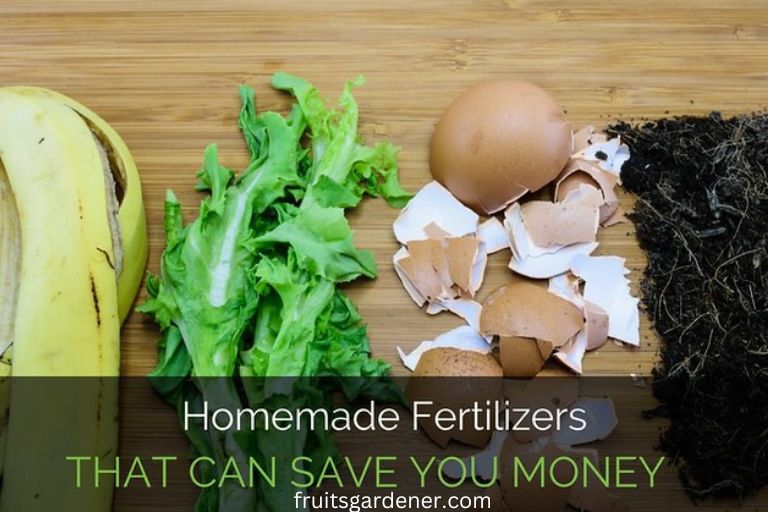This content is for informational purposes only and does not constitute financial, legal, or professional advice. Always consult a certified professional before making financial or investment decisions. As an affiliate, we may earn a commission from qualifying purchases made through links in this post at no extra cost to you.
There are a lot of different fruit tree fertilizers on the market. But which one is the best? It really depends on your individual needs and what type of fruit tree you have. In this article, I am going to tell you about the best fruit tree fertilizer in the below article. You can apply these fertilizers to your fruit tree. But you should know how to apply and when to apply.
If you have a citrus tree, for example, you’ll need a fertilizer that’s high in nitrogen. On the other hand, if you have an apple tree, you’ll need a fertilizer that’s high in potassium. The best way to figure out what type of fertilizer your fruit tree needs is to talk to a local nursery or extension office.
Well, you are also going to know details about the best fertilizer for fruit trees, and when & how to apply them. So, I hope you already understand the importance of reading this full article.
How to Choose the Best Fertilizer for Fruit Trees?
Fertilizing your fruit trees is important to ensure they are getting the nutrients they need to produce healthy fruit. But with so many different types and brands of fertilizer on the market, it can be hard to know which one is best for your trees. Here are a few things to keep in mind when choosing a fertilizer for your fruit trees:
1. The type of tree: Different types of fruit trees have different nutrient needs. For example, citrus trees need more nitrogen than other types of fruit trees. Make sure you choose a fertilizer that is specifically designed for the type of tree you have.
2. The age of the tree: Young trees need more nitrogen than mature trees. Choose a fertilizer accordingly.
3. The time of year: Fruit trees should be fertilized in early spring and again in mid-summer. Avoid fertilizing late in the season as this can encourage new growth that will not have time to harden off before winter arrives.
4. The application method: Fertilizers come in many forms, including granules, liquids, and spikes. Granular fertilizers are easy to apply but can be difficult to get evenly distributed around the root zone of the tree unless you have a lot of experience doing it (or access to professional equipment).
Liquid fertilizers are also easy to apply but can be less concentrated and thus require more frequent applications throughout the season (which can end up being more expensive in the long run).
5 Best Fruit Tree Fertilizer You Can Apply
They can help you choose the right fertilizer based on your specific situation.
If you’re looking to give your fruit trees a little extra boost, then you may be wondering what the best fertilizer is. While there are many different products on the market, we’ve compiled a list of our top picks for the best fruit tree fertilizer.
1. Miracle-Gro Fruit & Citrus Tree Fertilizer Spikes
These spikes make it easy to give your trees the nutrients they need without having to mix or measure anything. Simply insert them into the ground around the tree’s drip line and let them work their magic.
[su_button url=”https://www.amazon.com/dp/B000BZ8HNG?tag=saeid035-20″ target=”blank” style=”soft” background=”#0084a5″ color=”#FFFFFF” size=”8″ radius=”round”]Check Latest Price[/su_button]
2. Jobe’s Organics Fruit & Citrus Fertilizer
This organic option is perfect for those who want to avoid using synthetic products. It comes in a granular form that can be applied directly to the soil around your trees.
[su_button url=”https://www.amazon.com/dp/B01LEJVCIY?tag=saeid035-20″ target=”blank” style=”soft” background=”#0084a5″ color=”#FFFFFF” size=”8″ radius=”round”]Check Latest Price[/su_button]
3. Osmocote Plus Outdoor & Indoor Smart-Release Plant Food
This product can be used on both fruit trees and other plants, making it a great all-purpose option. It comes in pellets that slowly release nutrients over time, so you don’t have to worry about reapplying it too often.
[su_button url=”https://www.amazon.com/dp/B0071CZTK6?tag=saeid035-20″ target=”blank” style=”soft” background=”#0084a5″ color=”#FFFFFF” size=”8″ radius=”round”]Check Latest Price[/su_button]
4. Espoma Tree-Tone Organic Fertilizer
This organic fertilizer is specifically formulated for use on trees and shrubs. It contains essential nutrients like nitrogen, phosphorus, and potassium that will help promote healthy growth.
[su_button url=”https://www.amazon.com/dp/B00F2QOW5Q?tag=saeid035-20″ target=”blank” style=”soft” background=”#0084a5″ color=”#FFFFFF” size=”8″ radius=”round”]Check Latest Price[/su_button]
5. Humboldts Secret Golden Tree: Best Plant Food for Plants & Trees – All-in-One
[su_button url=”https://www.amazon.com/dp/B00FHQ994A?tag=saeid035-20″ target=”blank” style=”soft” background=”#0084a5″ color=”#FFFFFF” size=”8″ radius=”round”]Check Latest Price[/su_button]
How Much Fertilizer Does a Fruit Tree Need?
The best time to fertilize fruit trees is in early spring before new growth begins. A general-purpose fertilizer with a balanced nitrogen-phosphorus-potassium (NPK) ratio is typically all that’s needed. Apply the fertilizer according to the manufacturer’s directions, keeping it away from the tree trunk to avoid burning the roots.
How Often Do You Fertilize Fruit Trees?
If you want your fruit trees to bear fruit, you need to fertilize them. But how often should you do it? The frequency with which you fertilize your fruit trees will depend on a few factors, such as the type of tree, the age of the tree, the soil conditions, and whether or not the tree is bearing fruit.
In general, young trees need to be fertilized more often than older trees. And trees that are bearing fruit will need more fertilizer than those that are not. Here are some general guidelines for how often to fertilize different types of fruit trees:
Apple and pear trees: every 2-3 years Cherry and plum trees: every 3-4 years Peach and nectarine trees: every 4-5 years.
Annual Growth Rate Chart For Fruit Trees

What is the Best Time of Year to Fertilize Fruit Trees?
Fruit trees need to be fertilized in early spring before they start actively growing. This is because the roots are still dormant and can take up nutrients more efficiently at this time. It’s also important to fertilize before the leaves start emerging so that the fertilizer doesn’t burn them.
The best type of fertilizer to use on fruit trees is a balanced one that contains nitrogen, phosphorus, and potassium. You can either use a granular fertilizer or a liquid one. If you opt for a granular fertilizer, make sure to apply it around the dripline of the tree (where the outermost branches end) and not right next to the trunk.
Watering it in afterward will help the nutrients reach the roots more effectively. When using a liquid fertilizer, you can either apply it through your tree’s irrigation system or directly onto the soil around the tree. Again, make sure not to get any on the trunk or leaves as it could damage them.
Apply it when your tree is starting to show signs of new growth in spring, and then once every month or so throughout summer and early fall.
What is the Best Time to Fertilize Fruit Trees
Fruit trees need to be fertilized in order to produce healthy fruit. But when is the best time to fertilize fruit trees? The answer depends on the type of fruit tree and the climate where it is grown.
In general, deciduous fruit trees (trees that lose their leaves in winter) should be fertilized in early spring before new growth begins. This is because the roots are actively growing at this time and can best uptake the nutrients from the fertilizer. If you live in a warm climate, you may need to fertilize your fruit trees twice a year – once in early spring and again in late summer or early fall.
This second application will help the tree produce more flowers and fruits during the fruiting season. Keep in mind that too much fertilizer can actually harm your fruit tree. It’s important to follow the directions on the fertilizer package and apply it at the recommended rate. Over-fertilizing can lead to leaf burn, reduced fruiting, and even death of the tree.
What Fertilizer Makes Fruit Bigger?
There are a number of different types of fertilizer that can be used to encourage fruit growth. However, not all of them will necessarily produce larger fruits. One fertilizer that is known to promote fruit size is potassium nitrate.
This type of fertilizer provides the plant with nitrogen and potassium, both of which are essential nutrients for healthy plant growth. Applying potassium nitrate to the soil around your fruit trees or plants can help to encourage larger fruits.

Is 16-16-16 Fertilizer Good for Fruit Trees?
Whether or not 16-16-16 fertilizer is good for fruit trees depends on a number of factors, including the age and health of the tree, the type of soil it’s growing in, and the climate. In general, however, fruit trees need more nitrogen than phosphorus and potassium, so a fertilizer with a higher nitrogen content would be better. If you’re unsure about what fertilizer to use, it’s always best to consult with a local nursery or extension office.
Is 10-10-10 Fertilizer Good for Fruit Trees?
If you want your fruit trees to bear bountiful fruit, then using the right fertilizer is key. And while there are many different types and brands of fertilizer on the market, one that has gained popularity in recent years is 10-10-10 fertilizer. Here’s a closer look at what this type of fertilizer is and how it can benefit your fruit trees.
As the name suggests, 10-10-10 fertilizer contains 10% nitrogen, 10% phosphorus, and 10% potassium. This N-P-K ratio is ideal for promoting healthy growth in fruit trees. Nitrogen helps with leaf growth, phosphorus encourages root development, and potassium aids in flower and fruit production.
Applying 10-10-10 fertilizers to your fruit trees once a year – either in the spring or fall – can help them stay healthy and produce more fruit. If you live in an area with heavy clay soils, you may need to apply it more often since nutrients can leach out of these soils more easily. When using any type of fertilizer, it’s important to follow the directions on the package carefully so that you don’t overdo it.
Applying too much nitrogen can actually result in fewer fruits being produced by your tree. So err on the side of caution and start with a smaller amount than what’s recommended before increasing application rates if needed.
Organic Fruit Tree Fertilizer
Organic fruit tree fertilizer is one of the best ways to ensure your trees are getting the nutrients they need. While there are many synthetic fertilizers on the market, these can often do more harm than good, as they can contain chemicals that can be harmful to your trees. Organic fertilizers, on the other hand, are made from natural ingredients and are much safer for your trees.
One of the best organic fruit tree fertilizers is compost. Compost is rich in nutrients that Trees need including nitrogen, phosphorus, and potassium. It also contains beneficial microbes which help break down organic matter and make nutrients more available to plants.
Apply compost around the base of your trees once or twice a year, depending on their needs. Another great organic fertilizer for fruit trees is manure. Manure is high in nitrogen, phosphorus, and potassium – just like compost – but it also contains additional micronutrients that Trees need for healthy growth.
It’s important to use manure from herbivores like cows or horses rather than carnivores like chickens or pigs, as their manure will contain higher levels of nitrogen which can be detrimental to Trees. Apply manure around the base of your Trees once or twice a year, depending on their needs. Organic fruit tree fertilizer is an important part of tree care if you want healthy growth and bountiful harvests.

Fruit Tree Fertilizer Spikes
Fruit trees are a great addition to any home garden, and with the right care, they can produce an abundance of delicious fruit for many years to come. One important aspect of fruit tree care is fertilization, and using fertilizer spikes specifically designed for fruit trees is often the best way to ensure that your trees get the nutrients they need.
Fruit tree fertilizer spikes are made with a blend of essential nutrients that help promote healthy growth and fruit production. They are easy to use – simply insert them into the soil around the tree’s root zone according to package directions – and provide a long-lasting, slow-release form of nutrition that helps keep fruit trees vigorous and productive.
Whether you have newly planted fruit trees or established ones that are bearing little or no fruit, incorporating fertilizer spikes into your regular care routine can make a big difference in terms of both tree health and fruiting potential. Give your fruit trees the nutrition they need with fertilizer spikes – your efforts will be rewarded with an abundance of fresh, delicious fruit for many seasons to come!
What is the Best Fertilizer for Fruit Trees in Pots
One of the best things about growing fruit trees in pots is that you have a lot of control over the type of soil and fertilizer they receive. This is especially important when it comes to choosing the best fertilizer for fruit trees in pots, as different types can provide different benefits. In general, organic fertilizers are going to be the best option for fruit trees in pots.
This is because they release nutrients slowly over time, which means that the roots can take up what they need as they need it. This is opposed to synthetic fertilizers, which release their nutrients all at once and can then quickly leach out of the potting mix, leaving your tree roots starved. When it comes to specific organic fertilizers, there are a few options that are particularly well-suited for fruit trees in pots.
One is composted manure, which provides a good balance of nutrients and can help improve drainage in heavier potting mixes. Another option is bone meal, which is high in phosphorus and will help promote blooming and fruiting. And finally, fish emulsion is also a good choice for its high nitrogen content – just be sure to dilute it before applying it to your tree’s leaves.
Best Fertilizer For Fruit Trees 2023
Conclusion: Best Fruit Tree Fertilizer
A lot of people ask what are the best fruit tree fertilizer they can use for their fruit trees to get a good harvest. The answer really depends on the type of tree and the soil it’s growing in. However, there are a few general tips that can help you choose the right fertilizer for your fruit trees.
First, you should always test your soil before adding any fertilizer. This will help you determine what nutrients your soil is lacking so you can add the right ones. Second, remember that less is more when it comes to fertilizing fruit trees.
Over-fertilizing can actually damage roots and make fruits less flavorful. Finally, don’t forget to water regularly. Proper watering is essential for healthy fruit trees, no matter what type of fertilizer you use.







